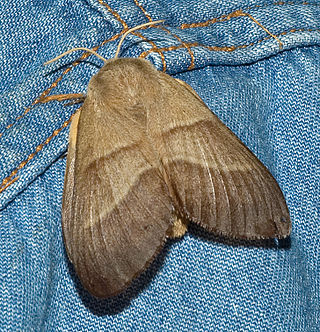
The Lasiocampinae are a subfamily of the moth family Lasiocampidae. The subfamily was described by Thaddeus William Harris in 1841.
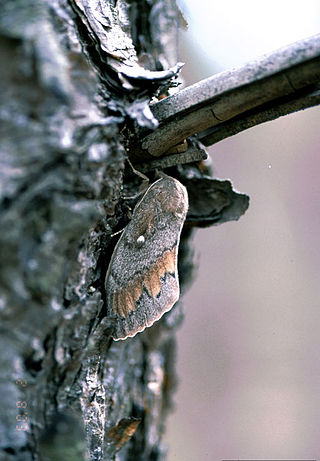
Dendrolimus pini, the pine-tree lappet, is a moth of the family Lasiocampidae. The species was first described by Carl Linnaeus in his 1758 10th edition of Systema Naturae. It is found in most of Europe ranging to eastern Asia.

Eriogaster lanestris, commonly known as the small eggar, is a moth of the family Lasiocampidae that is found across the Palearctic. Unlike many other members of the Lasiocampidae, the small eggar is a social insect. Historically, only eusocial insects like ants, bees, and termites were thought to exhibit complex social organization and communication systems. However, research since the late 20th century has found that E. lanestris, among a number of other phylogenetically related moth and butterfly species, demonstrates social behaviors as well. Larvae spend nearly their entire development in colonies of about 200 individuals, and this grouped social structure offers a number of benefits, from thermoregulation to increased foraging success.

Phyllodesma tremulifolium, the aspen lappet, is a moth of the family Lasiocampidae. It is found in Europe.

Poecilocampa populi, the December moth, is a moth of the family Lasiocampidae.

Malacosoma alpicolum is a moth of the family Lasiocampidae, the snout moths. It is native to the southern and central Alps.

Artace is a genus of moths in the family Lasiocampidae. The genus was erected by Francis Walker in 1855.
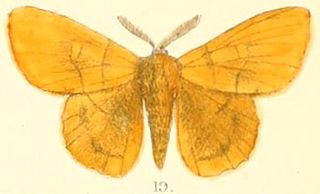
Crinocraspeda is a monotypic moth genus in the family Lasiocampidae erected by George Hampson in 1893. Its only species, Crinocraspeda torrida, was described by Frederic Moore in 1879.

Euwallengrenia is a genus of moths in the family Lasiocampidae. It was described by David Stephen Fletcher in 1968.

Paralebeda is a genus of moths in the family Lasiocampidae. The genus was erected by Per Olof Christopher Aurivillius in 1894.

Trichiura is a genus of moths in the family Lasiocampidae. The genus was described by Stephens in 1928.

Gastropacha populifolia, the poplar lappet, is a moth of the family Lasiocampidae. It is found in Southern and Central Europe, through Russia, India and China up to Japan.

Cosmotriche lobulina is a moth of the family Lasiocampidae. It is found in Europe through Siberia up to Eastern Asia.
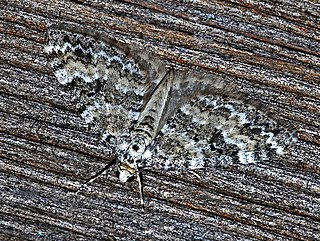
Perizoma minorata, the heath rivulet, is a moth of the family Geometridae. The species was first described by Georg Friedrich Treitschke in 1828.
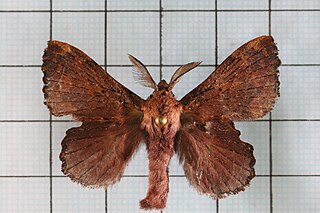
Takanea excisa is a species of moth of the family Lasiocampidae. It is found in Taiwan.

Eucraera koellikerii is a species of Lasiocampidae moth, it is known from Angola, Congo, Equatorial Guinea, Kenya, Mozambique, South Africa and Tanzania.
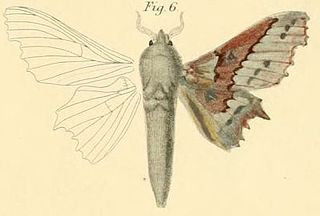
Mimopacha gerstaeckerii is a species of Lasiocampidae moth.

Streblote cristata is a species of moth in the family Lasiocampidae, the so-called eggars, snout moths or lappet moths. The species was first described by Caspar Stoll in 1782.

The Fauna of Nepal includes 3.96% of mammals, 3.72% of butterflies and 8.9% of birds among the total number of species found in the world. The protected species in Nepal include 26 mammals, nine birds and three reptiles. The endemic fauna are: Himalayan field mouse, Spiny babbler, Nepali kalij, 14 herpetofauna, and six types of fishes.



















